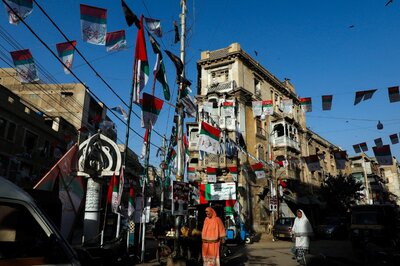
views
CHENNAI: Muthulakshmi is a regular at the Government Silver Jubilee Hospital in Saidapet since 2010. She comes in alone every Wednesday for her treatment.A mother of three, Muthulakshmi lives alone, having been thrown out of her home once she was diagnosed with leprosy. “My family was scared that it would spread to them. I was immediately sent out with all my belongings. They made me believe that I was cursed. One of our neighbours suggested that I go to the GH for help,” she says. The disease has left no visible scars, yet she is ostracised.Although many people are aware of the treatment options and the true nature of leprosy, the reality is that the stigma attached to the disease still persists. And in a city that has seen a declining number of leprosy cases over the past few years, the reaction to the disease still leaves something to be desired.When asked his opinion on what should be done if a member of his family contracts leprosy, Hari, a daily wage labourer, says, “I have heard that there is some treatment available. I would send them away from the house till they complete their treatment.” But what happens after the person is cured completely? “I would not be very comfortable having them around me,” he admits.In fact, college students make fun at the very mention of someone in their circle contracting a disease like leprosy. “It won’t happen to us,” is the common refrain. The Deputy Director of Medical Services (Leprosy) Dr Yogalakshmi says, “The affluent find it harder to deal with a disease like leprosy. There, the stigma is worse.” In a survey conducted by the National Leprosy Eradication Programme of Tamil Nadu after a city-wide awareness campaign last year, the results showed that a large percentage was aware of the signs and symptoms of leprosy, availability of free treatment and the curable nature of the disease. Other interesting findings were also gathered.In spite of this, health officers say that people hide in their homes when they show the first signs of leprosy, which are mostly patches of reddish or discoloured skin. "Once they admit that they have the disease, they are expelled from their homes. For this reason, we still see a lot of patients who come in at advanced stages of the disease,” says a health officer, not willing to be named.Despite the knowledge, people still choose to follow the old belief system blindly.



















Comments
0 comment